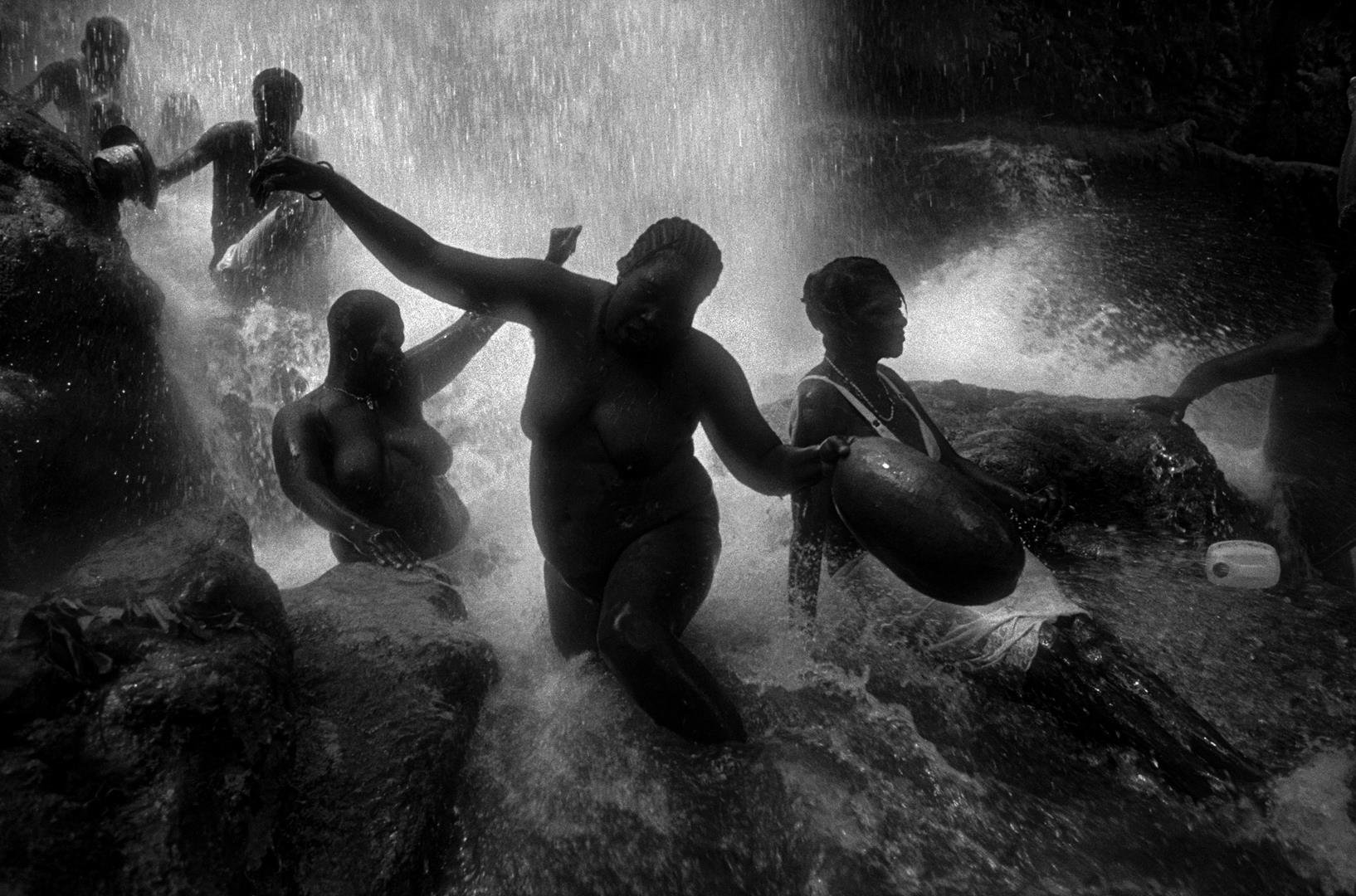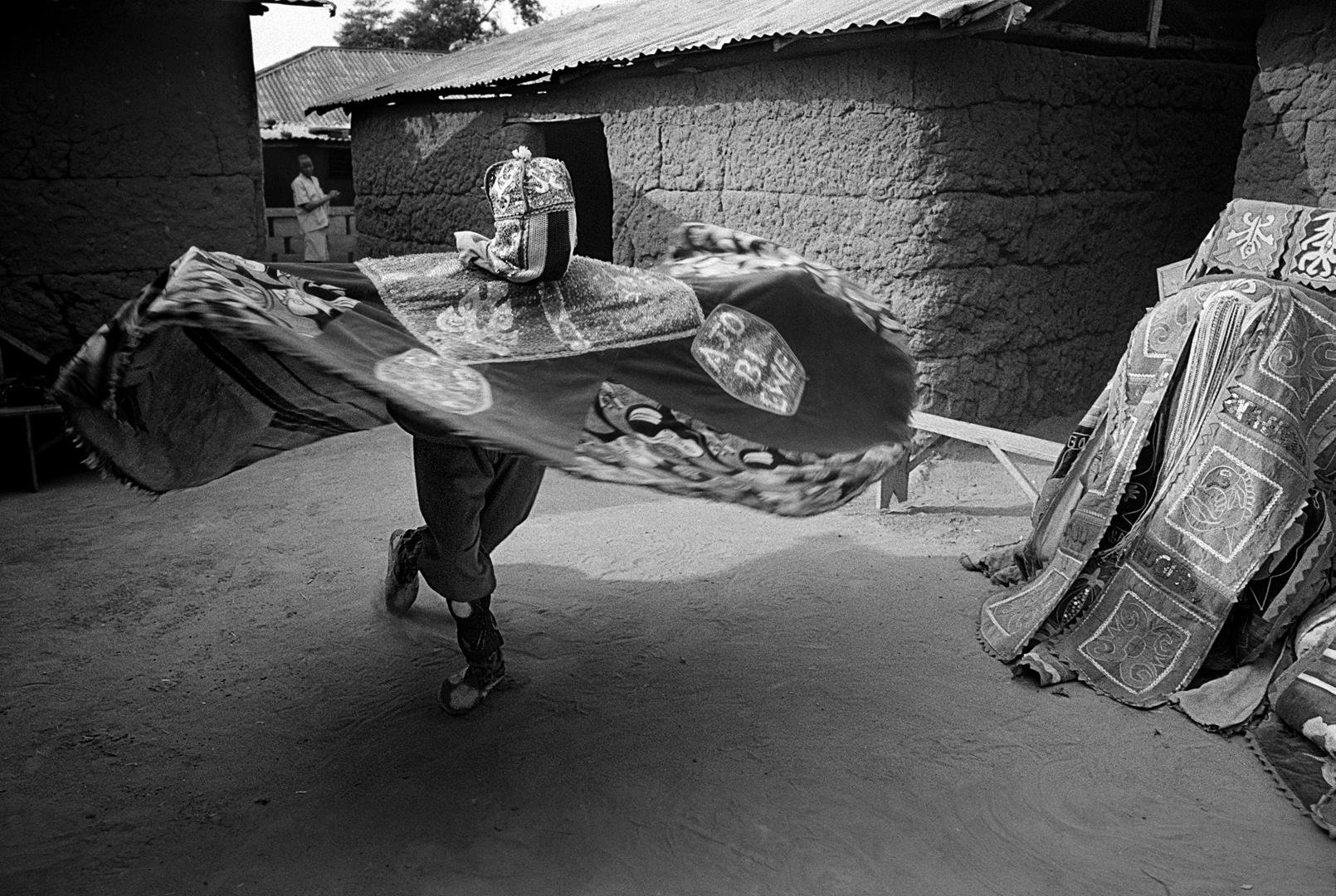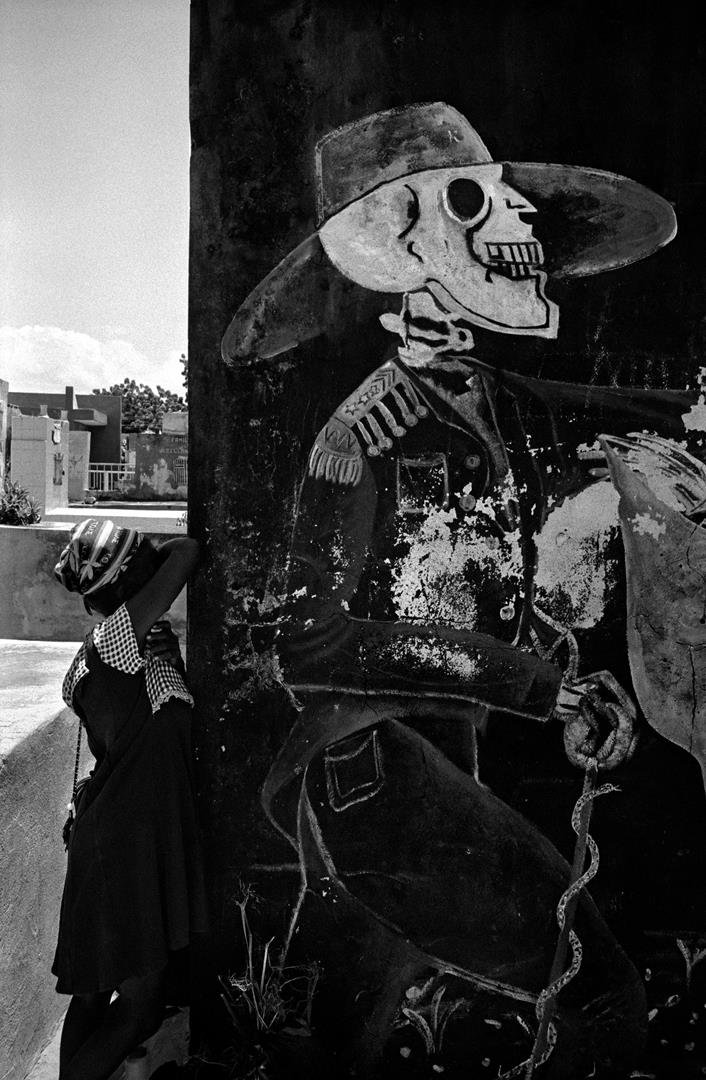From up close he portrays his subjects and the rituals they are involved in. The resultant series of dynamic black and white photographs illustrating ancient voodoo religion can safely be called impressive. Turine casts light both on the traditions and on the roots of voodoo, which originated in West Africa and gradually spread over the entire world through slave trade.
Mysticism
Between 2005 and 2010 Turine took photographs of several ceremonies, pilgrimages and rituals connected with voodoo religion. Most of the time he chose to portray the events in a somewhat detached way. However, at times he physically invaded the actual scene, making him a participant rather than just the photographer. This resulted in a series of photographs that is extremely diverse. Sometimes mysticism is almost tangible in these photos. In Miami Turine took pictures from up close of a priest blowing smoke in the face of a woman in trance. The photo of a bathing ritual near the water fall of Saut d'Eau in Haiti, taken while he was amongst the pilgrims participating, has a strongly dynamic feel to it and breathes an air of emotional release. At other times Turine deliberately kept at a distance, for instance when a woman kneeling down at a huge, knobby tree tried to get into contact with one of the numerous voodoo spirits. He also stepped back from the scene at the cemetery of Port-au-Prince where he was taking photographs of a woman requesting Baron Samedi, the spirit of the dead, to take good care of those who are deceased.
Vodun Cult
Voodoo originated in slavery and was declared the official religion of Haiti in 2003. The belief came into existence in the sixteenth century and is based upon a merging of the beliefs and practices belonging to the vodun cult from of West African Benin with the beliefs and practices associated with Roman Catholic Christianity. Voodoo was created by African slaves who were brought to Haiti in the 16th century and still followed their traditional African beliefs but were forced to convert to the religion of their slavers. From Haiti voodoo gradually spread to the United States and the Caribbean. Voodoo practitioners, who are commonly described as vodouisants, aim their prayers to a rather large number of spirits known as Loa, or Mistè. These spirits all have their own, distinct preferences and are honoured with specific rituals, symbols, dances and music. The Loa enable the vodouisants to contact the world of the dead, amongst whom deceased relatives and ancestors. This contact is highly important because respect for, and listening to what it is that these spirits and ancestors are conveying is absolutely quintessential if one wants to attain a better and more peaceful life on earth.

Gaël Turine
Gaël Turine was born in Nieuport, Belgium, in 1972. He studied photography at l'école des Arts Plastiques in Bruxelles. His collaborations with the press are considerable as a staff photographer for l'Express magazine and he is a frequent contributor to newspapers like Libération, Le Monde and The New York Times. In 2007, he was honoured with the "Golden Shamrock," a prize attributed by Belgian career funds, for his transatlantic project on the vodun cult. Over the last years, his works has been exhibited throughout Europe. There have been exhibitions of his photographs in amongst others Brussels, Milan, Paris and Berlin.


